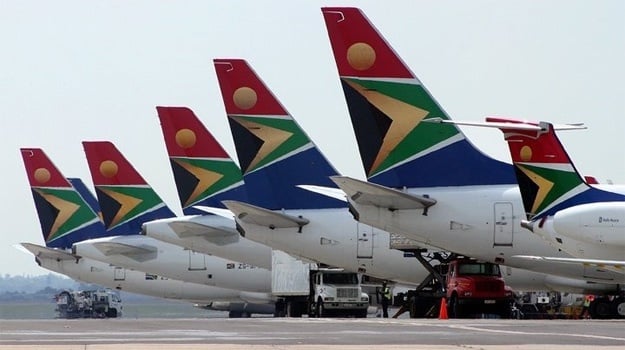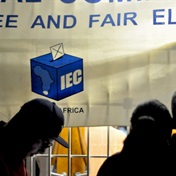
African aviation is considered the next aviation frontier.
The vast potential that the continent holds stirs an appetite for aviation development.
According to the International Air Transport Association (Iata), Africa is set to become one of the fastest growing aviation regions in the world in the next 20 years with an annual expansion of 5%.
Africa bossts of 419 airlines that support 6.9 million jobs contributing $80 billion (about R1.49 trillion) to the continent’s economy and only amounts to 2.5% of the global aviation traffic.
The growth indictors are there for all to see and so are the insurmountable challenges.
The coronavirus Covid-19 pandemic has been disastrous for many global entities from manufacturing to aviation.
Due to the travel restrictions put in place by various states, global and African aviation is flying in bad weather.
Iata last week announced that African aviation has so far lost $4 billion in estimated passenger revenue with a demand reduction of -32% since the Covid-19 outbreak.
Such losses have seen SA Express throwing in the towel and a number of airlines scraping the bottom of the barrel.
Covid-19 has infected the African aviation industry to the point of life support; however the industry was already malnourished.
Corruption, aged equipment, high taxes, government interference, poor infrastructure and poor business modelling are some of the factors that have made African aviation a challenge.
Government Interference
Very few African governments allow their state airline to operate independently.
In his resignation letter, former South African Airways (SAA) CEO Vuyani Jarana said: “Ways of working between the executive, the board and minister (without appointing blame) have made it difficult to operate with required speed and agility. Lines of accountability are becoming increasingly blurred, creating uncertainty about what operational decisions are in my domain, which are in the board’s domain and which are in the minister’s domain.”
Such interference is a commonality in African aviation.
African governments have a propensity of imposing their will on airlines regardless of the impact on the strategic plan.
Over the years we have seen network planning and route development being done on diplomatic grounds, not on the merits of that destination.
The same can be said about aircraft sourcing.
African transport ministries, in close liaison with the highest office of the land, are known to opt for aircraft deals that offer the biggest kickback to them personally rather than the required aircraft type for the airline.
This has led to some African airlines operating the wrong aircraft for their markets.
Corruption
Corruption is a major tailwind in African aviation.
In 2018 it was reported that the now grounded SA Express awarded a music promoter a 3-year fuel tender worth R2.4 billion.
What’s shocking was the promoter failed to supply a single drop and at the time of the deal SA Express had a similar arrangement running with SAA.
Various aircraft leasing and purchase deals in Africa are marred in corruption.
The use of third party suppliers or middlemen adds to the cost of the transaction and is a common feature in Africa.
Ghana, Mozambique, South Africa and Zimbabwe are among the African countries that have had aviation related corruption cases coming to light recently.
In Mozambique, state officials demanded a bribe of $800 000 to sign off the purchase of two turbo-prop second hand aircraft.
Poor Government Policy
The Single African Air Transport Market (SAATM) was launched in Addis Ababa in 2017.
SAATM is aimed to liberalise the African skies but three years on very few governments have implemented it.
Competition benefits everyone but most Africa governments see it otherwise.
Protectionism is the order of the day in most African countries.
Governments reserve some “lucrative routes” to the state-owned carrier while private airlines are assigned thin routes.
This practice only succeeds making service delivery poor and monopolies in route and pricing.
In recent history Fastjet Tanzania was assigned designation to operate in Tanzania at a time Air Tanzania had no capacity to serve the market.
Once TZ was equipped the government summersault on its decision and eventually withdrew the low cost airline’s operating licence.
Airlines are economic enablers and require periodic government investment.
Most airlines in Africa are financially struggling; both SAA and Kenya Airways received a substantial sum from their governments to keep afloat.
The cost of flying is high on the continent.
Airport taxes charged by authorities or airports companies are restrictive to growth.
These taxes for a regional/international flight average $45 in Africa whereas in some regions it is $30.
This pushes the price of the ticket and deters people from flying.
This must be reviewed from a high tax approach to a volumes approach; this way the market will be stimulated to travel by air.
Clear Skies Ahead
There is no denying the vast potential that Africa holds.
It will take a total recalibration from the authorities and airlines management to reach this potential.
Investment in aviation must be prioritised by governments and provide both airports and airlines with the necessary financing and support.
Aviation is a key economic enabler and as Dr Elijah Chingosho former CEO of African Airlines Association said “airlines are a critical economic enabler and will be vital for the recovery of economies once the pandemic is over, hence government support will make economic sense”.
African governments must give their airlines enough room to manage airlines in a progressive and professional manner with no interference.
Ethiopian Airlines is as example of a state owned airline making a profit and dominating Africa.
Policies introduced by government must act as a stimulant for the growth of aviation and not as a hindrance.
Liberalisation has proven to be a catalyst for aviation development in other regions and the same model must be applied on the continent.
On corruption governments must act swiftly and decisively to ensure it doesn’t continue affecting the industry.
Though malnourished, the coronavirus found African aviation on the recovery path; with enough nourishment and support the industry can fend off the virus and continue growing.
•Nunurai Ndawana is the Founder of Just African Aviation an aviation media company. He can be contacted on Twitter on @nunuraindawanaand email nunurai@justafricanaviation.com
 | ||||||||||||||||||||||||||
Get in touchCity Press | ||||||||||||||||||||||||||
| ||||||||||||||||||||||||||
| Rise above the clutter | Choose your news | City Press in your inbox | ||||||||||||||||||||||||||
| City Press is an agenda-setting South African news brand that publishes across platforms. Its flagship print edition is distributed on a Sunday. |




 Publications
Publications
 Partners
Partners








